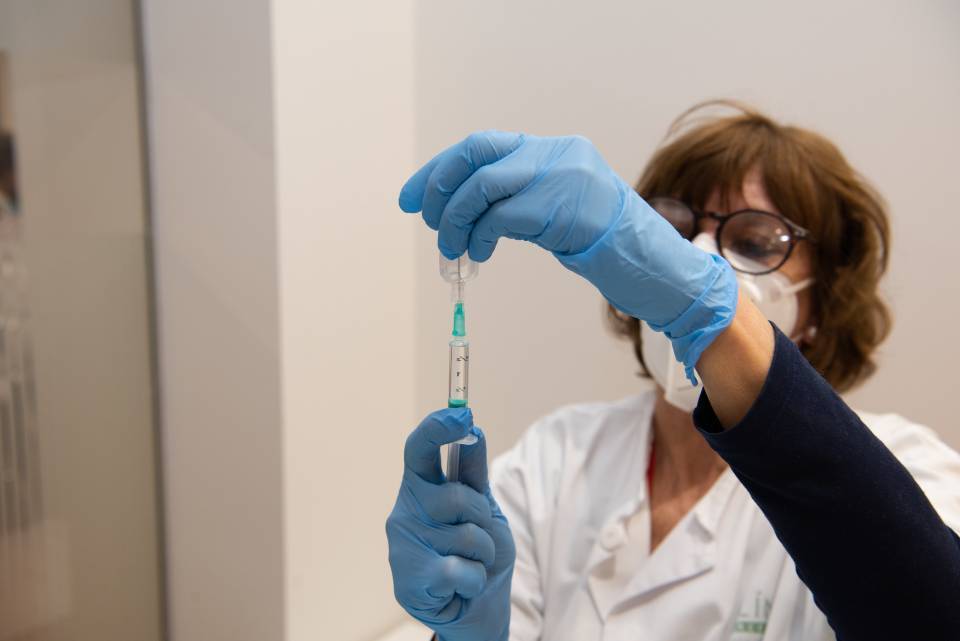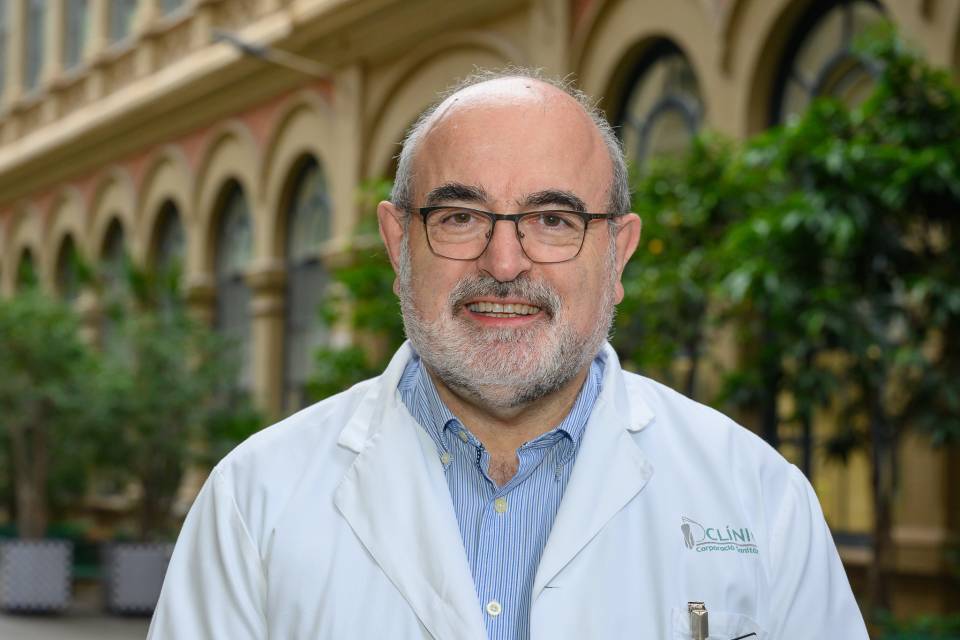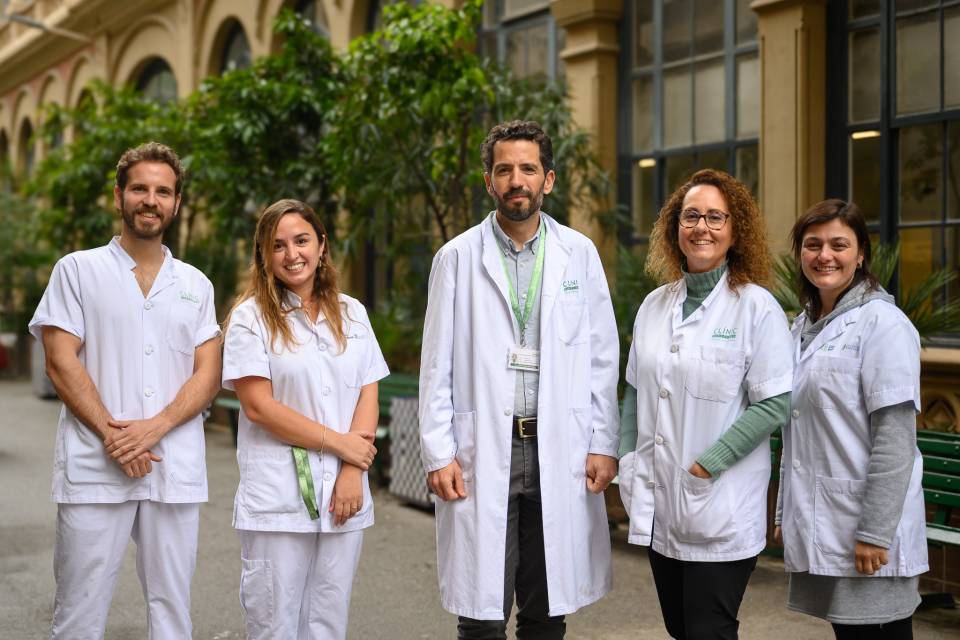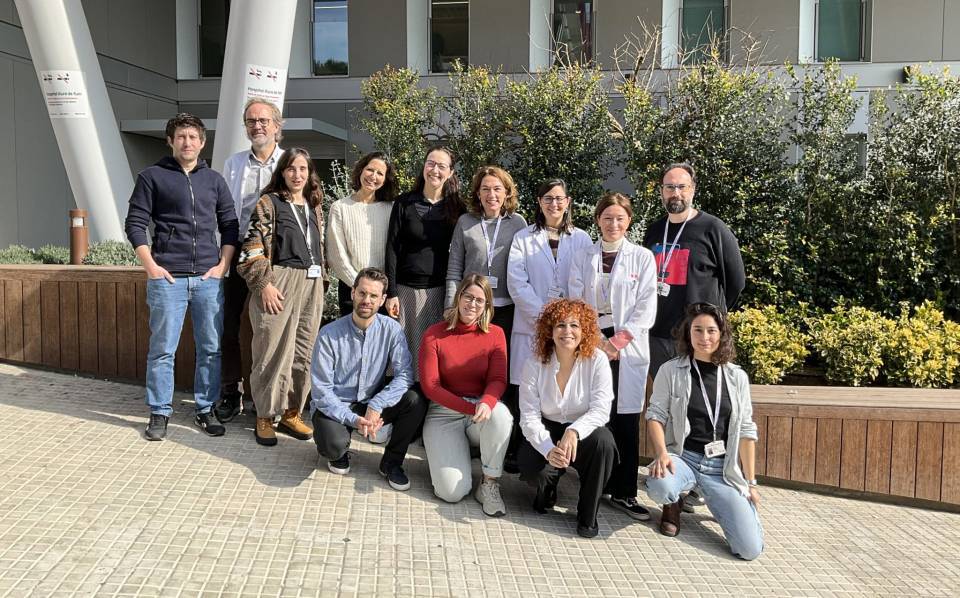The first author of the study is Dr. David Cucchiari, a transplant nephrologist, and it was coordinated by Dr. Fritz Diekmann, head of the Renal Transplant Unit at the Hospital Clínic de Barcelona. Professionals from the Nephrology, Immunology, Preventive Medicine and Infectious Diseases services also participated alongside cross-cutting work by the Nursing staff.
The study examines the degree of immunity developed after vaccination with the Moderna (mRNA) vaccine against SARS-CoV-2 in kidney transplant recipients. In the study, the behaviour of 148 recipients of either kidney (133) or kidney-pancreas grafts (15) was assessed in order to find out the humoral and the cellular response two weeks after they received the second dose of the Moderna vaccine.
After vaccination, 65% of the patients who had not previously been exposed to the virus developed a humoral or a cellular response. Of those patients, 29.9% developed immunoglobulins (antibodies) and 35.0% ELISpot positivity (cellular response through the activation of T-lymphocytes capable of attacking the virus). The factors associated with vaccine unresponsiveness were diabetes and treatment with anti-thymocyte globulin during the last year (a drug that is used to prevent or treat organ rejection). The side effects were similar to those found in the rest of the population. Studies already published indicated that the percentage of patients that developed antibodies against COVID-19 was lower in transplant patients than in the general population. This information tallies with past experience with other types of vaccine, for example against hepatitis B. However, the cellular immunity after vaccination against COVID-19 had not been studied yet. This is what is new about this study, which indicates that 65% of kidney transplant patients have some type of immunity, either through humoral or cellular response.
However, further studies are needed, and a new line of research has opened up to find out to what degree of intensity vaccinated patients who have neither cellular nor humoral immunity, or only one of these two types, can combat the virus: suffering from a mild case of the disease and/or not requiring hospital admission.
Dr. David Cucchiari explains that, “to fight against the virus we can have antibodies, which would be like the cavalry, and the cellular response, which would be like the infantry. This study suggests that there are patients who can only combat the virus with one of these two things."
The team is working to gain more in-depth knowledge about this subject and on the interpretation and significance of the findings. Moreover, the aim is to work towards finding a solution to this less than optimal response to the vaccine.
Consult the article.




